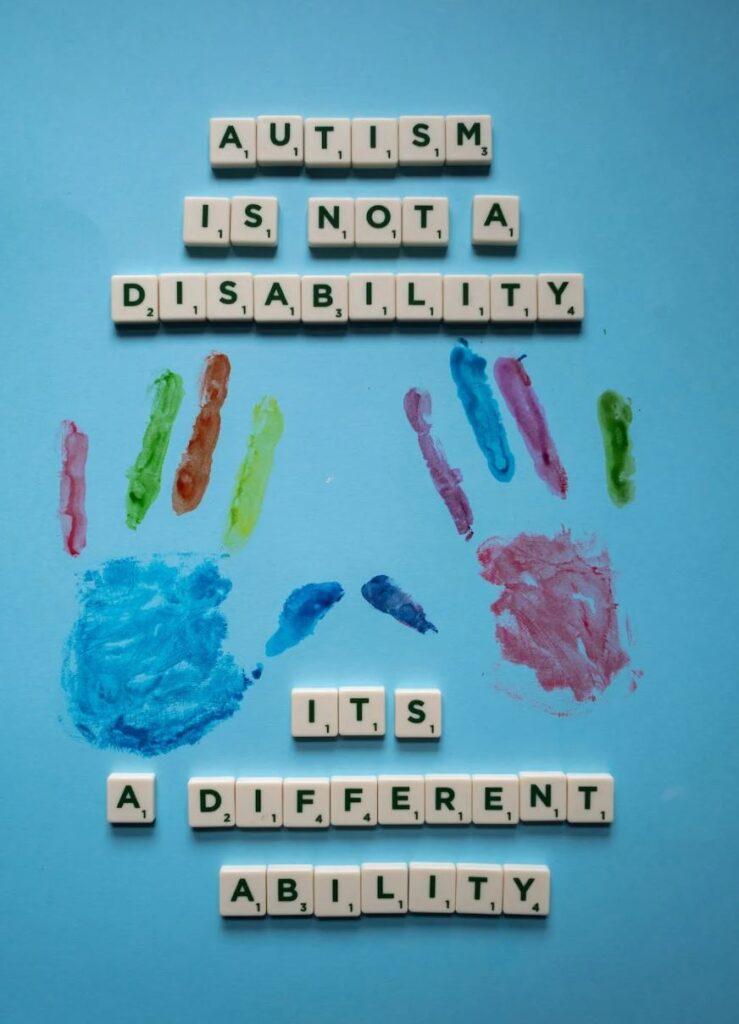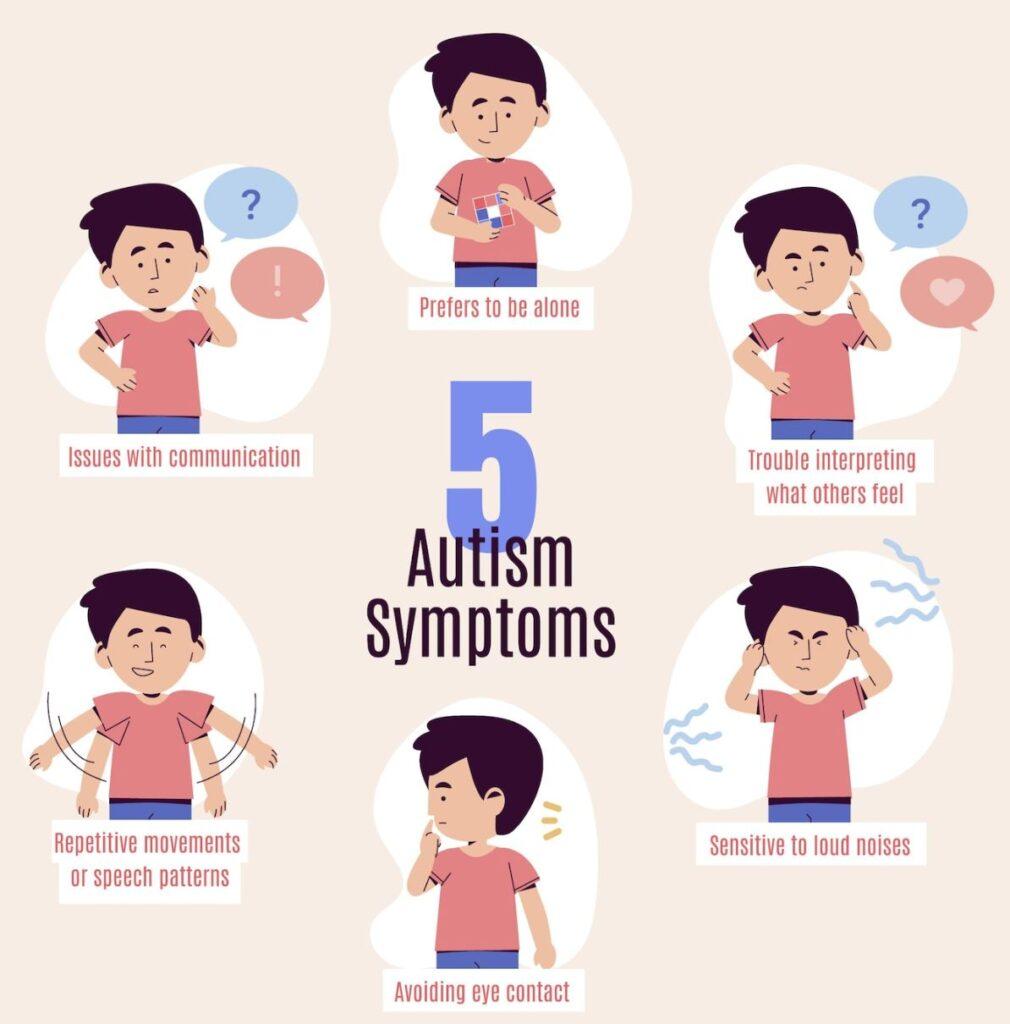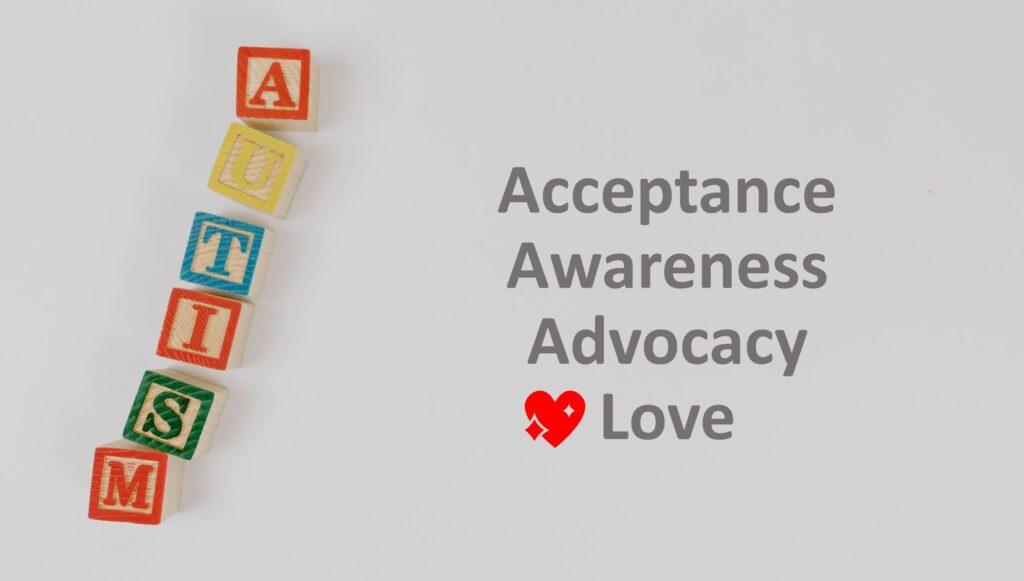As parents, we have lots of wishes for our kids, intelligence, kind, strong, but we often forgotten the given gift – healthy. Till I read the article from Stephanie, I start to realize how lucky we are just to have a normal and healthy kids. As everyone knows, taking care of a special needs kid isn’t always an easy road. Today, Stephanie, a mother of 2 and a nurse-turned-freelancer, shares her 5 life-changing lessons by parenting autism kids in the following story.
Related Reading:
- 12 Things can Help Raise Kids with Diversity and Inclusion in Mind
- 10 Ways to Be an Upstanders in Bullying
- 8 Type of Intelligence – Every Kid is Gifted
- How to Stop Kids from Chewing Their Shirt

Table of Contents
Autism Spectrum Disorder and Symptoms

ASD (autism spectrum disorder) is a developmental disability caused by brain differences. Scientists believe that multiple causes of ASD interact to alter the most common ways people develop.
People with ASD may behave, communicate, interact, and learn differently than most other people. ASD appears before the age of three and can last for the rest of a person’s life, though symptoms may improve over time.
People with ASD often have problems with social communication and interaction, and restricted or repetitive behaviors or interests. People with ASD may also have different ways of learning, moving, or paying attention. They may be brought to the attention of healthcare providers if they also have anxiety, depression, or attention deficit/hyperactivity disorder.
If there’s one word that every parent dreads to hear, it would be “Autism.” Though a lot has been known about autism with the help of research, no one can still pinpoint its actual cause.
But, its incidence rises with each year that goes by. 1 in 160 people worldwide is considered autistic. In the USA alone, according to CDC, 1 in 44 children are diagnosed as autistic regardless of where they fall within the spectrum.
But, never in our wildest dreams as parents did we imagine that this dreaded word would become our reality.
“Life with a special-needs kid is like a roller coaster ride. Sometimes we feel we’re on top of the world for every new word our son makes. Sometimes we’re down in the dumps each time he goes into a meltdown or throws tantrums. But, we choose to count and focus on all the positive things instead, hoping that tomorrow will be a better day.” — Stephanie

5 Lessons I Learned While Parenting Autism Kids
The day the doctor told us that our then 4-year-old son has autism and is delayed in almost all his developmental milestones, it seemed like heaven was punishing us.
It’s like a gut-wrenching punch that we never can recover from. A death sentence that will forever loom in our lives.
But, as cheesy as it sounds, there is always a silver lining. And that silver lining comes from the realization that everything isn’t as wrong as it seems.
1. Perfection is Not the Name of the Game

I remember our son’s birth, and I already imagined how he would grow up.
Being the achiever I am, I secretly hoped he would excel in academics as I did in my younger years: top honors and all.
Yet, when my son didn’t start speaking as he should at 2, my perfect vision of him began to crumble. Suddenly, I saw my son as a curse instead of a blessing to nurture and welcome.
I became critical of every flaw, every “wrong” behavior, and every concept he couldn’t understand. In the back of my mind, I thought he was just a late bloomer.
But, no matter how hard we tried to teach him, no improvements were in sight. It seems the dream I had for him will remain a dream. And so, I began to resent my son, shouting at every misdemeanor he made.
However, all these changed when he started his occupational and speech therapy. He slowly showed improvements in his communication skills and how he dealt with the most straightforward problems any child could have.
That was when I realized that I didn’t have to paint my picture-perfect vision of him for me to love him back. He doesn’t need to perform to my expectation for me to adore him.
He doesn’t need to achieve something extraordinary for me to shout to the world that he’s my son.
As cheesy as it sounds, his very flaws are what make me, as his mother, love him more. He’s struggling, I can see it, but he’s not giving up on improving daily, which is what matters more than perfection.
2. Stay Focused on your Kids and Not What Others Say

Grown up as a top students, I have my own burdens – being the focus and the role model. Thus, I learned to be very wary of every decision I make. In my mind, I was always imagining how other people thought of my actions. Those feelings of insecurity were fueled more when I started noticing the red flags in my son’s development. He couldn’t talk, let alone point to us what he needed.
Plus, the countless meltdowns and tantrums he throws our way every day of the week. Even at night, he wakes up from a seemingly good night’s sleep and starts screaming his lungs out.
With all these “embarrassing” things my son did, our neighbors started dropping “innocent” speculations on what could’ve caused his shouting and crying. Unsolicited advice was then given, which, I think, was done out of goodwill.
But, the paranoid part of me didn’t think the advice was out of pure intention. I focused on what other people would say about him and my parenting skills with my son’s “alarming” behavior. I keep seeing my classmates’ kids proudly reciting their ABCs, identifying objects, and singing nursery rhymes with matching dance moves on social media.
All the more, I kept wracking my brains for a possible wrong parenting move that could have caused my son not to act like his peers.
And that mindset could have harmed my son more as I chose to feed my ego rather than see him for who he is. I was so focused on letting others see how great my son is when he’s struggling.
I let others judge how good a parent I am when only he and his younger brother can say if I am a bad or good mom to them.
Start with Therapy Session
When my son started his therapy session, his occupational therapist told me, “Parenting autism kids is to focus on what he can do, not on what he cannot do. Don’t compare his achievements with others; instead, celebrate the small wins he’s gaining daily.” That the the “aha moment” wakes me up, he needs a mother who loves him unconditionally, as simple as that. I was lost.
I started to refrain the social media account sharing and focused more on my son’s improvements with every therapy session he attended. Even on bad days when my son’s not doing great, I always look back on his behavior before he started and now that he’s about two years in therapy. As the saying goes, we are still far from ideal but have already accomplished much.
3. Lower Expectations but Welcome Possibilities

I have a high expectation in my life – a meaningful career, a decent income, and a family full of love. But, I wasn’t aware that I was slowly passing my expectations to my son. Aside from the growing fear that something was wrong with him, I was pushing him to perform what he should be doing by then.
Yet, when he started therapy, we noticed that there were already drastic improvements in his behavior and speech.
With that, I learned that parenting autism kids needs more help in learning the most basic concepts that a neurotypical child his age quickly understands. Sometimes, you’ll have to be creative with how you teach those concepts.
Hence, it made me realize that I shouldn’t expect what he should be able to learn by now, which would only frustrate him even more. Instead, keep that goal, that milestone, in mind, and break down the steps you’ll have to do with him to achieve it.
Who knows? One day you’ll be surprised your kid has already mastered what you have taught him with great patience and enthusiasm.
4. Accept Things are NOT Under Your Control
As humans, it is understandable that we want to have a certain sense of control in our lives. Though it’s hard to say what’ll happen each new day, we love to plan things out using our little to-do lists and goal charts.
Admittedly, I am one of those few who love the security that comes with being able to control what happens in a day. Even until our son came, I loved to plan out our day with a routine that helps us navigate those days.
Yet, parenting autism kids, there was one thing I couldn’t control — my son’s temper. In the morning, he’s cheerful, then out of the blue, he’ll transform into a bit of helion, usually after his afternoon nap. And that meltdown would last for more than an hour or so. That was draining. There were days I wanted to lie in bed and cry my heart out as I lost all sense of control.

But, eventually, I learned to let things go with each day that our son shows improvement. Yes, he still has tantrums and meltdowns, but I learned to breathe through it. I need not be the perfect parent who can predict how my son will react to a certain house rule or a new situation he’s in. I learned to embrace all his reactions and emotions.
He is still a human, a child that needs to learn how to handle his big emotions without me snarling at him for not being able to manage them well.
I may be his parent, but he isn’t my clone. He is my son, and I should guide him on how to handle all the uncertainties life will bring instead.
5. Learn When to Ask for Help
Have you ever heard a parent who hasn’t complained for once about how their children misbehave? If you do, let’s congratulate that parent for not once experiencing being at their wit’s end.
Kidding aside, parenting is already hard with neurotypical kids. How much more if you have one with special needs?
Yes, special children can understand, albeit having to phrase them in terms they know. But, sometimes, you must repeat those instructions a couple of times (20 or more) before they can get it. Moreover, you’d need to demonstrate what you want them to do. Yet, there is no guarantee how they’ll respond. Either they follow what you say to them without qualms or turn into fire-breathing dragons if they don’t get what they want.
And that happens every day, without telling when they’ll burst out in anger over something they shouldn’t be doing.
That’s what I experienced with my son. Though I so wanted to be a hands-on mom like how my mom was, nobody was able to prepare me that I need to have an infinite loop of patients daily.
After he was officially diagnosed, I understand it wasn’t his intention to disobey me or make me mad, and he didn’t understand how things worked. Yet, even with that profound learning, there are still days I lose my temper. These moments usually happen when I haven’t slept well the night before or I’m simply tired.
So, either my husband or mother will step in while I take a breather outside to let my feelings out. Indeed, you need all the help from everyone you know. A village, or maybe, a city, to help you care for a child with special needs without becoming insane.
What Our Future Looks Like
It’s hard to say how my autistic son would grow up, given the difficulties he’s experiencing in learning the ways of the world. Will he be able to attend college, let alone go to mainstream school? Can he have real friends that understand him? Even more, Could he meet his special someone and live their married life in bliss?
These are still some haunting questions plaguing our minds as parenting autism kids. Life is hard enough for neurotypical kids to hurdle. How much more for those who are differently abled?

But, one thing is for sure. Despite how bleak and uncertain our child’s future is in other people’s definition, he will always have me, his daddy, and his younger brother to love and support him all the way.
We’ll take one day at a time and make the most of every day given to us so that we won’t have any regrets when heaven calls us back.
Additional Questions from Lin
How much does it usually cost monthly to send a special-needs child to therapy?
On average, parenting autism kids can easily spend as much as $60,000 annually for therapies like ABA, speech, and occupational therapy. But that still varies depending on your location, the therapy center’s fees, and how many hours a week the child goes to therapy. Since we’re living in a developing country, we spend roughly $200 a month for 1 hour of occupational therapy, 1 hour of speech therapy, and 1 hour of supplemental teaching weekly.
Do you send your special needs child to a regular school or a school specialized for children with special needs?
Currently, my son’s enrolled in the special education department of a public school in our locality. But, he can be moved into a regular class if his teacher and developmental pediatrician signal it.
Final Thoughts from Pragmatic Lifestyle
We wanted many things,
But missed so many gifts,
From god, from nature, from our little kids.
Love should be unconditional,
Time should be cherished,
But we should not forget to love ourselves.
Spend each day we have,
With love and joy.
About Me
Hi, there. I am Lin. Together with my husband and two kids, we live in the beautiful Netherlands in Europe. I am dedicated to self-development, creating quality time for the whole family, and fully supporting kids with their potentials with all I have learned from engineering, MBA, and 10+ years of working experience in the energy sector.


